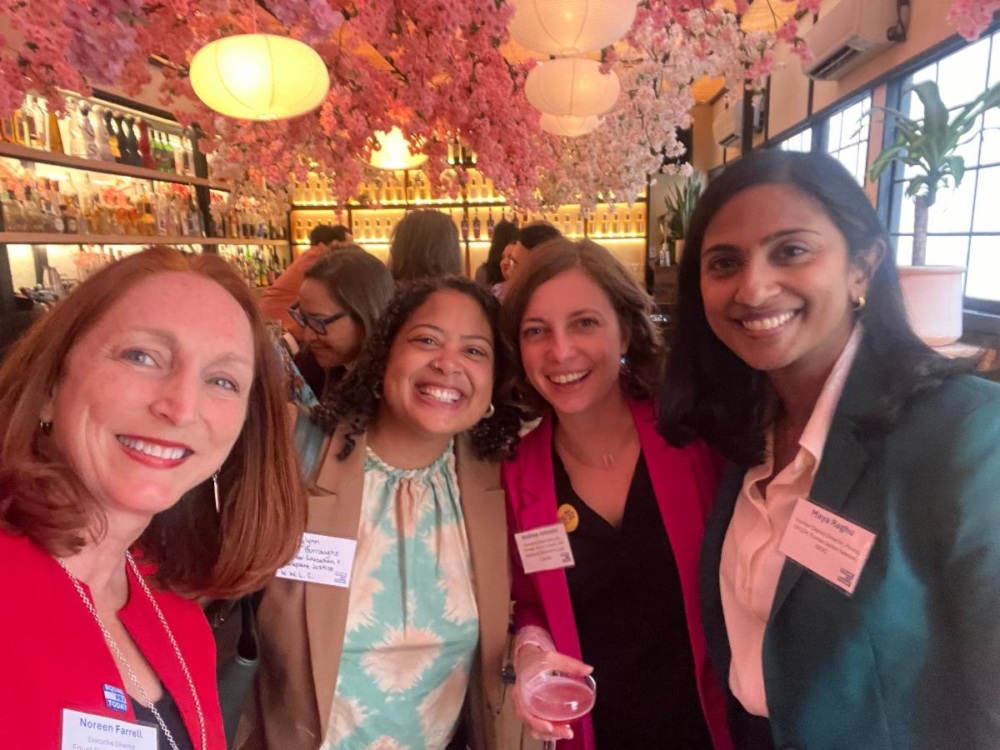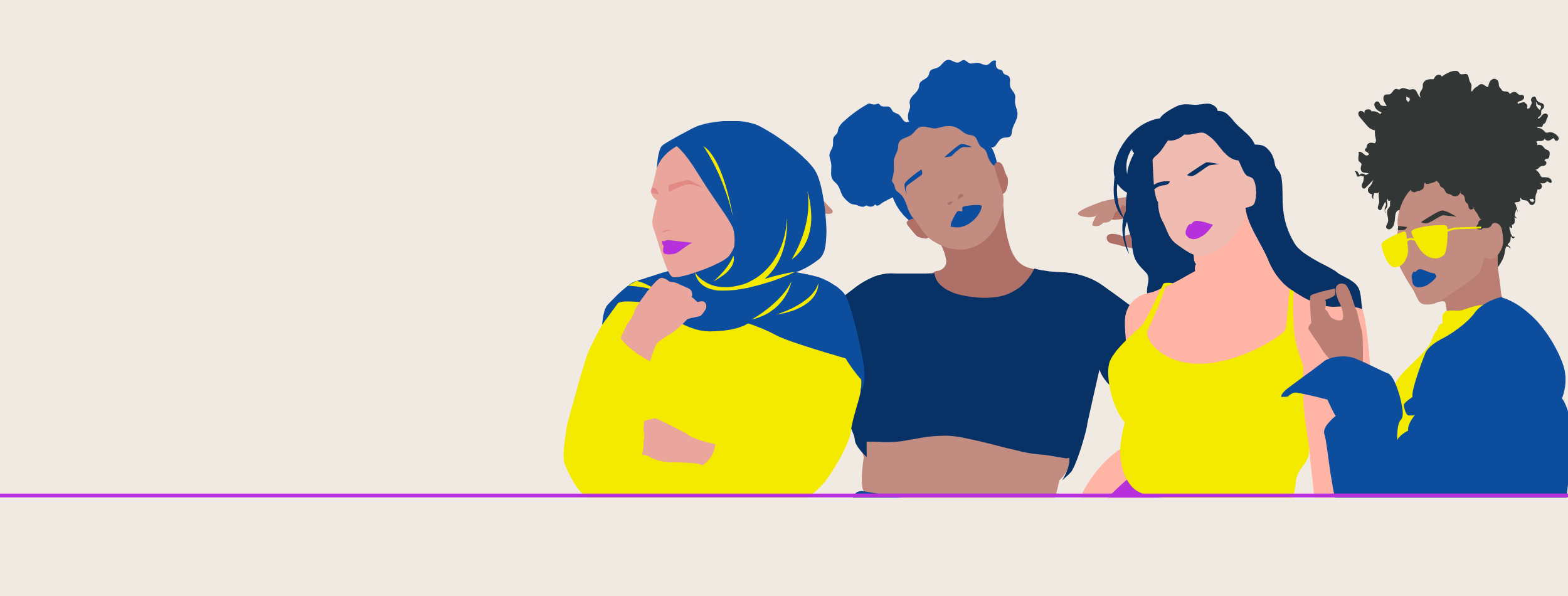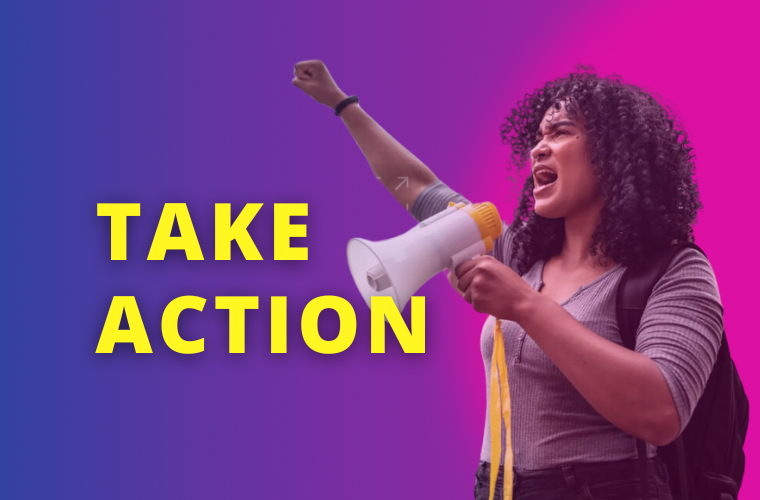

Black Women’s Equal Pay Day: Pay Disparities Compounded by Occupational Segregation
Check out the 2023-2024 Equal Pay Policy Agenda to see how ERA is tackling workplace pay inequality head-on.
By Delesiya Davis
July 27, 2023, is Black Women’s Equal Pay Day, when we mark pay disparities and other forms of workplace discrimination that harm Black women and their families, and prevent them from building wealth.
Occupational segregation accounts for about 30% of the gender pay gap, and the overrepresentation of Black women in our country’s lowest paid professions is stark. Here’s a deeper dive into the facts behind the figures on Black Women’s Equal Pay Day:
“Occupational segregation accounts for about 30% of the gender pay gap, and the overrepresentation of Black women in our country’s lowest paid professions is stark.”
Occupational segregation occurs when one demographic group is overrepresented or underrepresented in a certain job category. According to the Center for American Progress, in the United States, the lowest paying industries are: restaurant, fast food, lounge, and coffee shop workers; dishwashers; food preparation workers; dining room and cafeteria attendants and bartender helpers; residential advisers; child care workers; cashiers; crossing guards and flaggers; and other entertainment attendants and related workers. Of these industries, Black women make up a disproportionate percentage of the workforce, including 10% of restaurant, lounge and coffee shop workers; 10% of fast food and counter workers; 7% of food preparation workers; 7% of Dining room and cafeteria attendants; 17% of residential advisers; 13% of child care workers; 14% of cashiers; and 12% of crossing guards and flaggers.
Meanwhile, in the highest paying industries in America—including physicians; dentists; chief executives; legislators; lawyers, judges, and other judicial workers; architectural and engineering managers; personal financial advisers; and computer and information systems managers—Black women are severely underrepresented, making up 3.7% of physicians; 2.3% of dentists; 1% of chief executives and legislators; 3.1% of lawyers, judges, and other judicial workers; 1.1% of architectural and engineering managers; 3.1% of personal financial advisers; and 2.3% of computer and information systems managers.
“Research shows that if Black women have names suggesting that they are Black or African American, they are less likely to receive call backs and job interviews.”
Several contributors are at play, one of which is discrimination against Black women in the workforce. Research from the Institute for Women’s Policy Research shows that if Black women have names suggesting that they are Black or African American, they are less likely to receive call backs and job interviews. Additionally, certain occupations require training or letters of recommendation before someone can enter the field, which harms Black women because they often have trouble accessing apprenticeships. They also may not know anyone else in the field they would like to enter.
These factors contribute to the underrepresentation of Black women in infrastructure-related industries such as construction, green energy, and manufacturing, where representation is glaringly low. In construction, women make up only 10.9% of the industry, and African Americans make up only 6.7%. (Notably, there is insufficient tracking of representation by race and gender in construction, but a 2020 report revealed fewer than 1% of Black women in construction.) In green energy, women account for less than 30% of jobs,and African Americans account for only 8%; and in manufacturing, women make up roughly 30% of the industry, and African Americans only 10.8%.
When it comes to recruiting and retaining workers in these infrastructure industries, stereotyping, discrimination, and sexual harassment drive Black women away, as do biases in hiring processes, lack of flexibility for family care givers, lack of training opportunities, lack of women in leadership positions, and unequal treatment.
“If Black women were paid what they deserve, they would struggle less to feed their families and cover other basic necessities.”
As a result of working in lower paying jobs, many Black women earn substantially less than their white male counterparts over the course of their careers, affecting their livelihoods and health outcomes, and creating often insurmountable barriers to creating generational wealth for their families. The median income for Black women is only about $36,303 a year compared to white men, whose median income is $57,702 a year. According to the National Partnership for Women and Families, if the typical Black woman working in the United states was paid the same as the typical white man, she could afford roughly 30 months of food, 25 months of child care, four semesters of tuition at a four-year public university, the full cost of tuition and fees for a two-year college, or 13 months of employer based health insurance premiums. If Black women were paid what they deserve, they would struggle less to feed their families and cover other basic necessities. More Black women could achieve higher education, with less debt, enabling them to obtain higher paying jobs.
Powerful solutions exist to combat the income gap Black Women face. Join our Black Women’s Equal Pay Day Social Media Storm on July 27, at 11 a.m. PT / 2 p.m. ET, to demand Black women be given equal opportunities to access higher paid jobs and advocate for policy reforms addressing other contributors to the wage gap.
Stay Connected & Take Action
- Get the Latest News & Information Sign up for Email Updates
- Sign Up for Action Alerts Join the Action Team
- Follow Us


